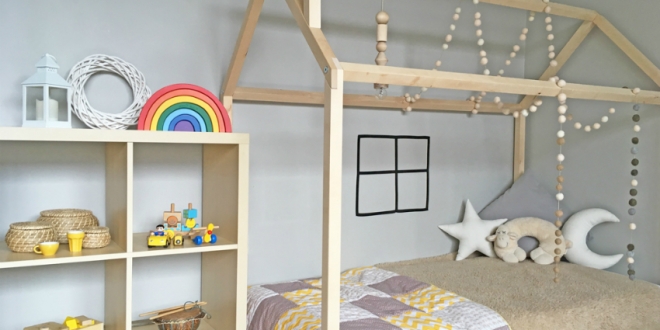According to the attachment theory of therapist and theorist J. Bowbly, babies whose needs are met in a timely and consistent manner develop a positive self-perception about themselves and the outside world. In other words, babies feel their parents’ presence and love closely; Meeting the needs of the baby quickly contributes to the development of the baby’s basic sense of trust. If you met Kidokit during this period and followed our tips, you have already taken positive steps in this regard. The important thing here is that you can respond immediately when your baby needs you. It is important for their development that children can sleep in their own rooms. However, there are different opinions about the separating child room and timing.
Separating Child Room
Many things become important when shaping sleep habits. The issue of separating your child’s room is an issue that should be considered according to your family structure, your and your child’s sleeping habits, and the physical conditions of your home. We do not find it right to set sharp lines for a subject to be evaluated, from the physical conditions of the house, the temperament of the child and the parents, the past sleep experiences of the parents, and the working conditions of the parents. Our approach in this matter is to share different views and leave the decision to you on a parent-child basis. Some opinions, considering the nutritional needs of the baby, are fed only with breast milk in the first six months; If it is assumed that they are later switched to additional foods, it recommends that the baby gain the habit of sleeping in his own room after the sixth month. According to this approach, if your baby still sleeps with you, separating his room from the 12th month is definitely recommended from a developmental point of view.
natural parenting etc. In approaches, it is important to provide suitable conditions for the child. Whether it is a baby bed or a parent bed, it is very important for every baby to have their own sleeping area and sleep in this area. We have some suggestions for questions you can ask yourself when deciding whether to book a room with your child. For example, until what age is it acceptable for you to sleep together in the same room/bed? How do you think your habit of sleeping together affects the child’s personal perception? To what extent does the fact that your child sleeps in your room or in your bed affects your marital relationship positively/negatively? After thinking through the answers to these questions, we recommend that you evaluate some conditions for both yourself and your baby before separating the rooms. Let’s see what these conditions are. Make sure that it is a calm and peaceful period for both your baby and you. For example, if your child has a fever, is teething, has just started kindergarten, or a sibling has come home, you can postpone this for a while. Or if you are not calm and peaceful as of the period, if you are very sleepy, you can save some time for yourself. If your child sleeps in the same bed as you, it may be a good idea to transition gradually. You can separate the beds first and then the room. You can even complete the transition process by adding daytime naps in your own bed and then night naps. There are also things you can do to make your child adopt his own room. If he is past his infancy, you can narrow down the options in the selection of items so that he can choose and place some things. You can spend time in the room during the daytime.
There are some issues that we would recommend you to pay attention to after your child’s transition to his own room. We recommend that you do not leave your child alone when he or she cries, from the point of view of getting used to it. Yes, it’s true, if you leave your child alone when he cries, his crying will stop over time, but not because he feels safe, but because he has learned the helplessness and accepted that no one will come. That’s why we recommend that you never leave their crying unanswered. We highly recommend that you be consistent and support him whenever he needs you, when he is afraid. When you are crying or scared, instead of saying “There is nothing to fear” or “Why are you crying, you don’t have to cry”, say “I am here, I am with you, you are safe, I will protect you”. “Mother protects, father protects”, see his need for trust and support by staying calm and consistent, and after a while, your efforts to make your child leave you more easily and feeling safe will find their place. Remind yourself often that many things that seem illogical and meaningless to you can be very challenging for your child. And in this process, please stay away from comparing your child and other families with yourself. Every child and family is unique. You are unique. Don’t forget to show yourself the greatest compassion on a lifelong parenting journey.
